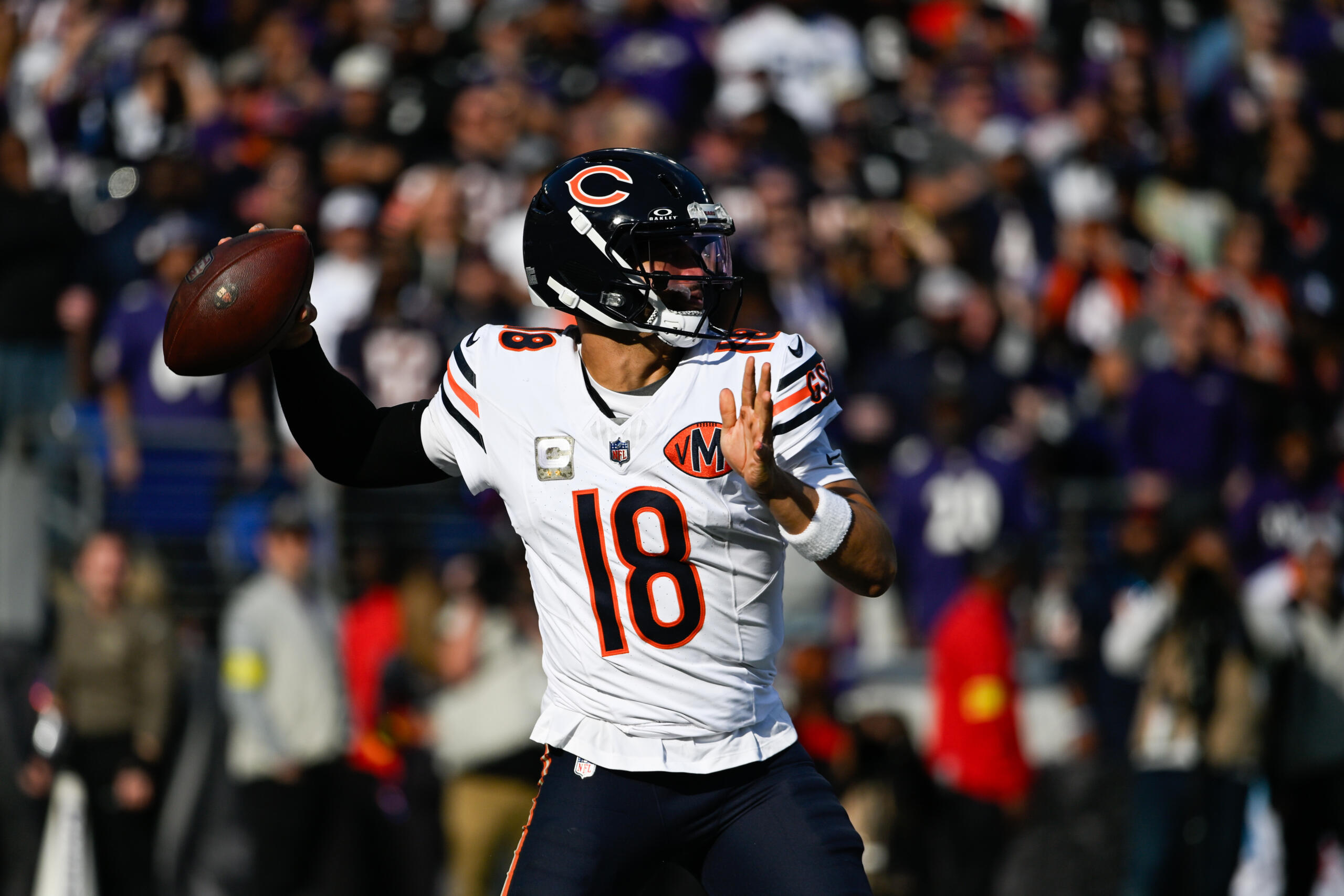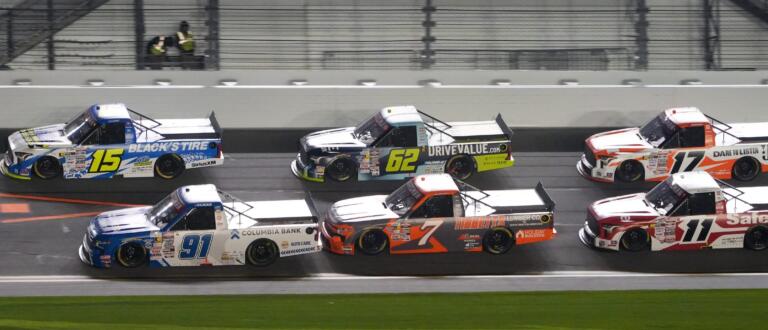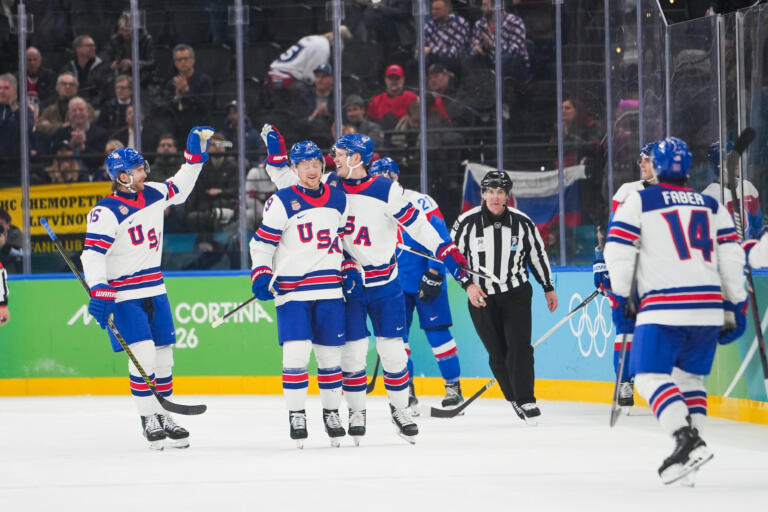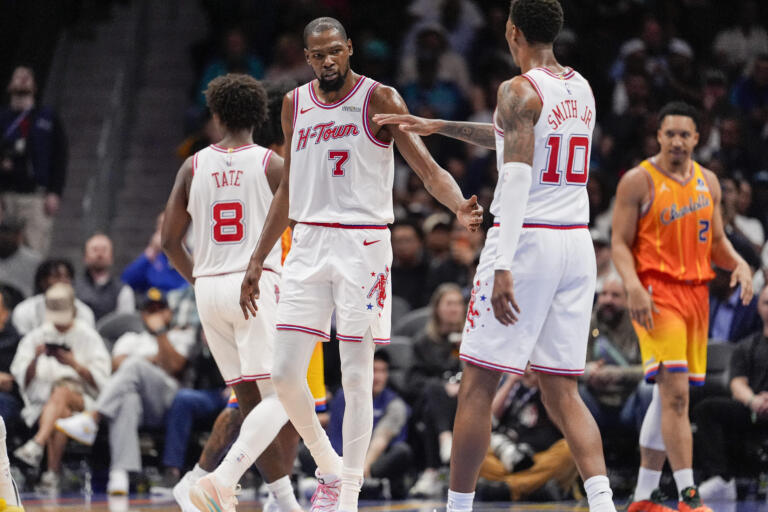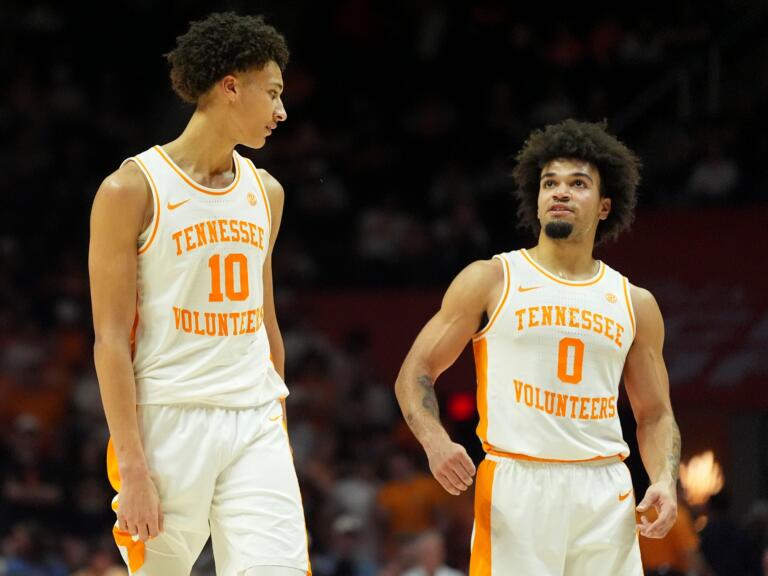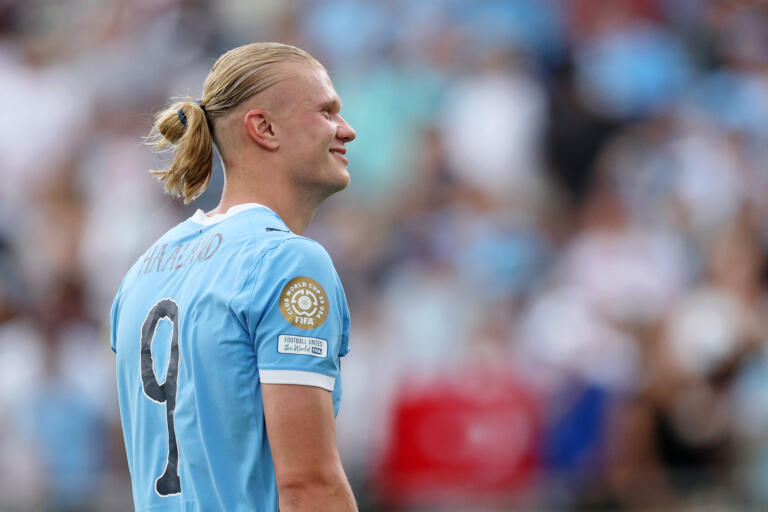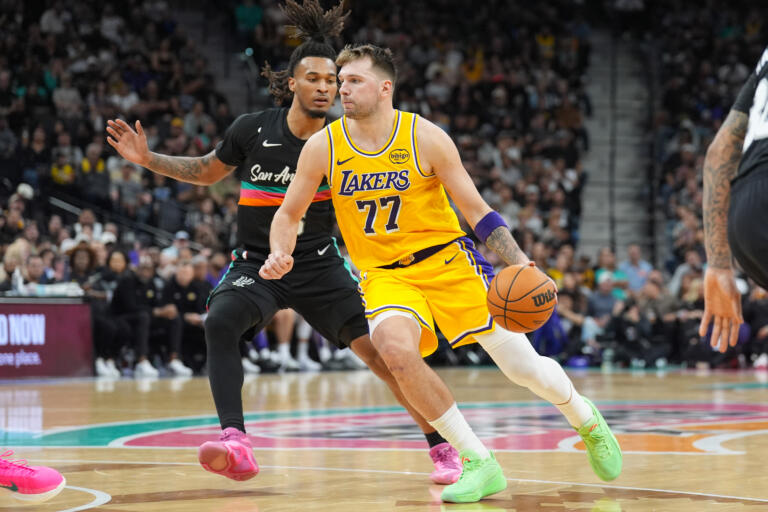The No. 1 pick was brought in to save Chicago’s offense. Two seasons in, he’s the reason it still can’t move forward.
The Chicago Bears thought they finally cracked the code.
After decades of quarterback misfires and draft busts, they spent the No. 1 overall pick on Caleb Williams — the Heisman winner, the generational arm, the personality built for the spotlight. He was supposed to be the answer. Two seasons in, the only thing clear is that the Bears are still searching for one.
Williams has talent, no question. But right now, he’s overrated. And worse, he’s the reason the Bears’ offense looks stuck — erratic, inconsistent, and constantly undercut by the quarterback who’s supposed to be its centerpiece.
A Quarterback Who Can’t Get Out of His Own Way
The Bears didn’t draft Williams to be a project. They drafted him to be a difference-maker. They built an offense around his strengths — mobility, arm strength, creativity — and gave him the tools to succeed. Yet Chicago’s attack continues to sputter, ranking near the bottom half of the league in most major offensive categories.
Williams’ box-score numbers still tempt you to believe: decent completion rate, solid yardage, occasional highlight throws that flash his ceiling. But when you watch the film, it’s a different story. Too many sacks. Too many late throws. Too many plays that collapse because Williams refuses to take what’s there.
The biggest issue isn’t his talent — it’s his decision-making. He’s playing backyard football in a league built on precision. The NFL rewards discipline. Williams is still chasing chaos.
He holds the ball too long. He forces throws that don’t need forcing. And when the Bears offense needs him to manage the game, he tries to play hero instead. The result is a team that lives and dies on whether its young quarterback can pull off something spectacular — and more often than not, it dies.
The Myth of the “Generational” Quarterback
Williams entered the league with a label no young player can live up to: generational.
That word carries weight. It implies immediate transformation, overnight results, and a rare kind of dominance. Williams hasn’t shown that. Not even close.
His arm talent is undeniable. His creativity is elite. But the hype outpaced the reality. He hasn’t elevated the offense. He hasn’t made average receivers look great or turned broken plays into wins. The highlight clips are there, but they’re isolated moments in otherwise uneven performances.
If anything, his improvisational style — once his calling card — has become a liability. Instead of running the offense as designed, he freelances. He breaks from structure. He turns rhythm throws into off-balance attempts. It worked in college when defenses were slower and schemes simpler. In the NFL, that same habit turns into three-and-outs and strip-sacks.
Chicago Has Done Its Part
The Bears’ front office can’t be blamed for not trying. They’ve upgraded the offensive line. They’ve surrounded Williams with capable skill players. They’ve installed a system tailored to his strengths — short reads, motion, quick releases. They’ve given him what most young quarterbacks don’t get: structure, protection, and patience.
And still, the offense doesn’t function.
That’s not on the coordinator. That’s not on the line. That’s not on the receivers. That’s on the quarterback.
The Bears have a defense good enough to keep them in games. Their special teams are competent. Their coaching staff has stabilized after years of turnover. The missing piece is supposed to be the one under center — and right now, he’s the one holding the team back.
Leadership Still Lags Behind
Williams’ on-field issues are compounded by perception. In college, his swagger was endearing. In the NFL, it can read as immaturity. When things go well, he’s energetic and vocal. When they don’t, the frustration spills out — visible irritation on the sidelines, slumped shoulders in the huddle, disconnected body language after turnovers.
That doesn’t play well in a veteran locker room. Leadership in the NFL isn’t about emotion — it’s about steadiness. It’s about making 10 other guys believe that no matter the score or situation, the quarterback has it under control. Williams hasn’t proven that yet.
Coaches have defended him publicly. Teammates have backed him up. But privately, players notice inconsistency. They notice when the quarterback points fingers instead of taking ownership. They notice when confidence crosses into stubbornness. That’s not a character flaw — it’s a maturity gap. But at this level, that gap can sink a season.
Year Two Should Look Different
The most concerning part of this story is that the struggles look familiar. The mistakes he made in his rookie year — slow reads, forced throws, careless fumbles — are still there. Quarterbacks are supposed to make the leap in Year 2. That’s when the game slows down. That’s when instincts turn into command.
Williams hasn’t made that leap. He’s still playing fast and loose, like he’s trying to prove he belongs rather than show he’s in control. And the Bears are paying for it every Sunday.
Chicago’s offense has talent. The scheme is competent. The line gives him enough time. But Williams’ inconsistent play disrupts everything. Receivers can’t build timing. The running game loses rhythm. The team can’t find a groove. It’s like watching an engine misfire — all the parts are there, but the ignition keeps sparking out.
Overrated Doesn’t Mean Hopeless
Calling Caleb Williams “overrated” doesn’t mean he’s a bust. It means the expectations don’t match the results. He was drafted to be a franchise changer, but through two seasons, the Bears are the same team they’ve been for years — inconsistent, unreliable, and offensively stale.
Overrated means the hype has outpaced the production.
It means the film doesn’t match the headlines.
It means the Bears have built an offense around a player who hasn’t earned the right to be its foundation.
Williams has tools. He’s got the arm talent, the athleticism, and the competitiveness to become great. But he hasn’t shown the maturity or discipline that separates raw potential from real production. Until he does, the Bears’ offense will stay stuck in the mud.
The Clock Is Ticking
The Bears don’t have endless time to wait. This is a franchise with a loyal fan base and a short fuse for disappointment. The city’s patience has been tested by too many quarterback experiments that started with hype and ended in regret. Williams isn’t at that point yet — but he’s on the road there if things don’t change soon.
Year 2 isn’t early anymore. It’s evaluation time. The Bears need to know whether Williams is the future or just another name in a long, frustrating line. The stats, the film, and the record suggest he’s closer to the latter right now.
What Needs to Happen
If Williams wants to flip the narrative, it starts with humility. He has to stop trying to prove he’s special and start proving he’s dependable. Take the checkdown. Throw on time. Stop turning every play into a magic act.
The Bears don’t need flash. They need efficiency. They need a quarterback who trusts the system and his teammates — not one who treats every possession like an audition.
He also needs to lead differently. That doesn’t mean quieting his personality. It means channeling it. It means staying poised when things go wrong and setting the tone when they do. Real leaders don’t just respond to success — they stabilize chaos. That’s the next step for Williams.
Bottom Line
Caleb Williams was supposed to fix the Bears. Instead, he’s become another reason they can’t get out of their own way. The offense is stagnant because its quarterback is. The talent is there, but the discipline isn’t. The tools are there, but the timing isn’t.
He’s no longer adjusting to the league — the league has adjusted to him.
Now it’s his move.
If he doesn’t evolve, Chicago’s “franchise quarterback” experiment will end the same way the last dozen have — with frustration, finger-pointing, and another rebuild nobody in this city wants to live through.
Williams was drafted to be a star.
Right now, he’s just another question mark.
And that’s the biggest problem the Bears have.


